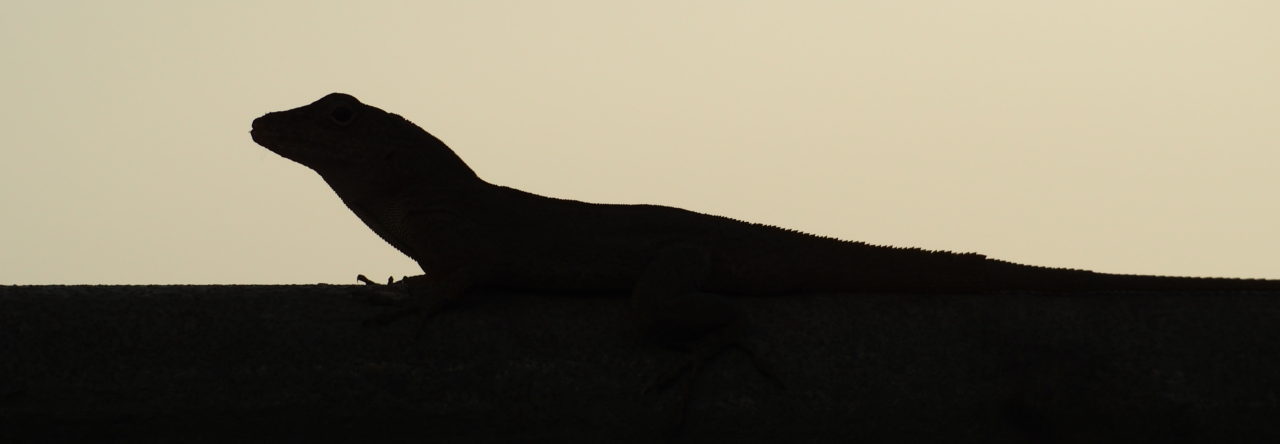
A small sample of anole dewlap diversity. Image from Nicholson et al. (2007).
Dewlaps are pretty dazzling, ranging in size, coloration, and sexual dimorphism substantially among the 400+ species of anole currently recognized. Levi Gray, a doctoral candidate at the University of New Mexico is fascinated by Anolis dewlaps, and has spent many years studying them. One of the classic hypotheses surrounding dewlap evolution in anoles is that its size follows a clinal pattern with environment (Fitch and Hillis 1984). In their formulation, Henry Fitch and David Hillis proposed that, due to a relatively short breeding season, anoles in more seasonal habitats have larger dewlaps than anoles in more aseasonal habitats. This hypothesis makes an explicit connection between the intensity of sexual selection and the size of a conspicuous ornament.
Levi set out to test the Fitch-Hillis hypothesis in 40 species of Mexican anoles distributed across environmental gradients, with some species found in aseaonal cloud forests and rainforests and others found in more seasonally dry habitats. Contrary to the Fitch-Hillis hypothesis, he found no relationship between seasonality and dewlap size in the Mexican anoles. He did detect a few clade effects: for example, a group of closely related western Mexican anoles all have large dewlaps. He then examined the Fitch-Hillis hypothesis within a single widespread species of anole, A. sericeus, to see if the pattern holds up within species, even if it doesn’t hold up among species. Again, he didn’t detect a pattern. Levi suspects that the relatively limited sampling of the original study might have led to a pattern that doesn’t hold up when a broader sampling within and among species is employed. It is possible that seasonality impacts a different aspect of the dewlap, such as coloration, but this remains untested. Levi’s results suggest that the processes impacting dewlap size might be complex, and promises more to come. Stay tuned!

Levi Gray presents his research on dewlap size evolution in Mexican anoles at SICB 2018 in San Francisco.
- SICB 2018: Revisiting the Fitch-Hillis Hypothesis in Mexican Anoles - January 8, 2018
- Evolution 2017: Urban Anoles Sprint Faster on Smooth Substrates - June 26, 2017
- SICB 2017: New Insights into Pre- and Postcopulatory Selection in Anoles - January 10, 2017


Leave a Reply